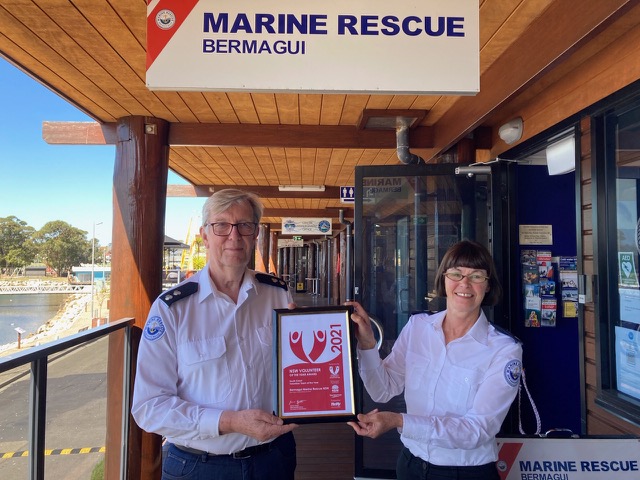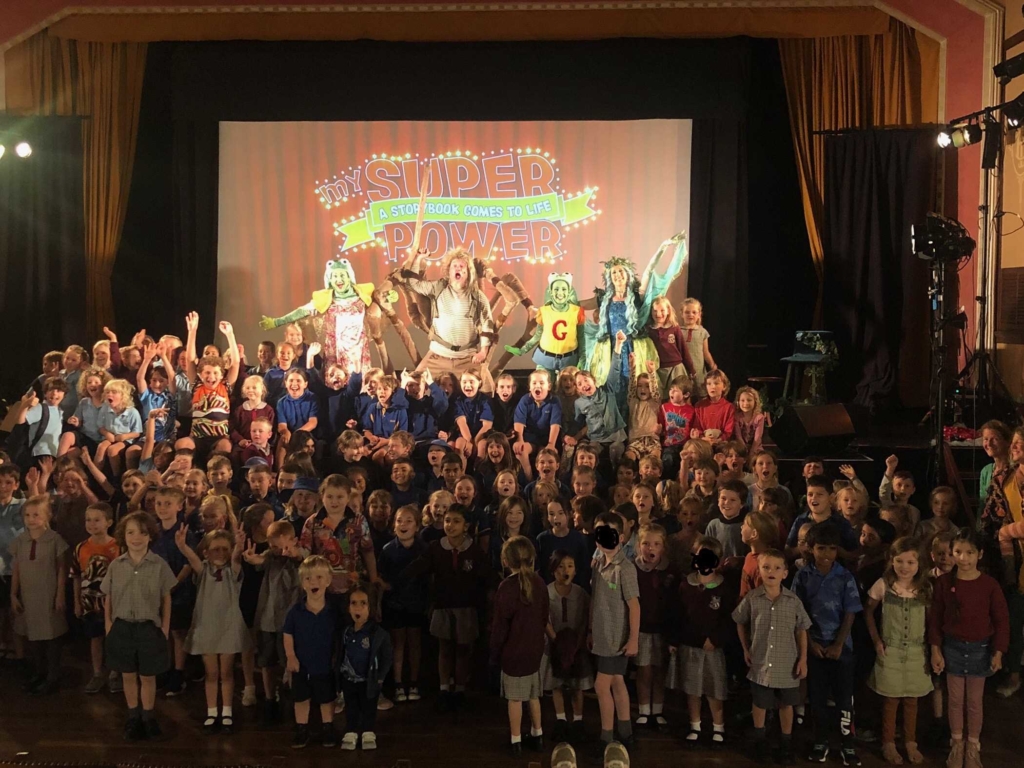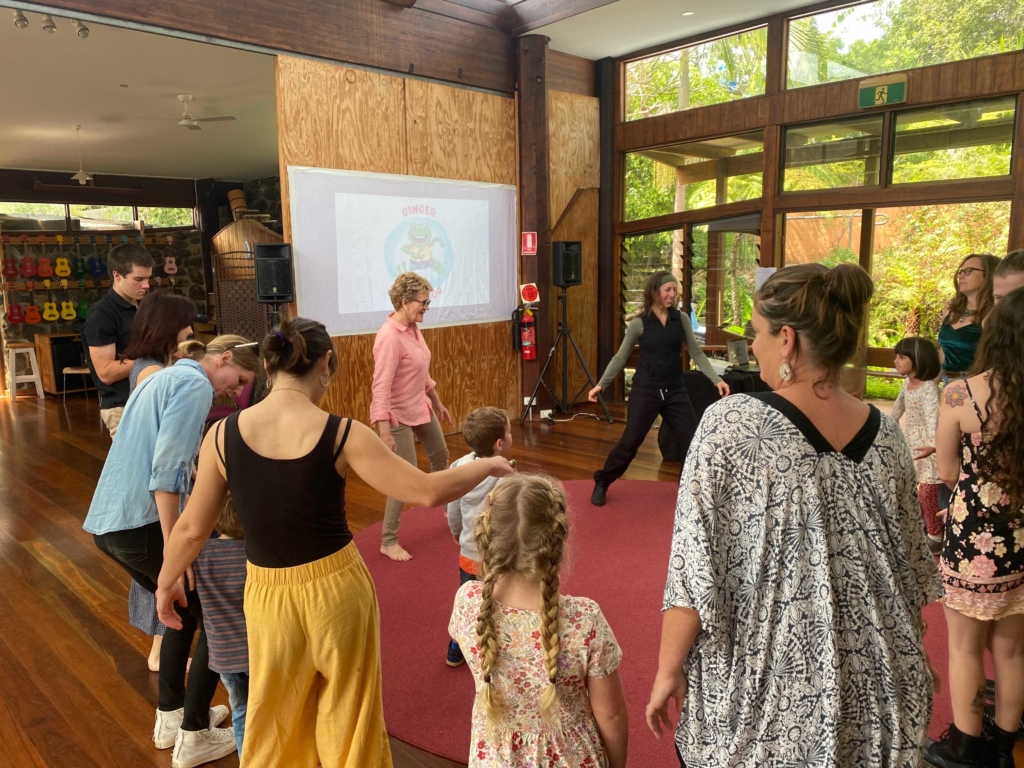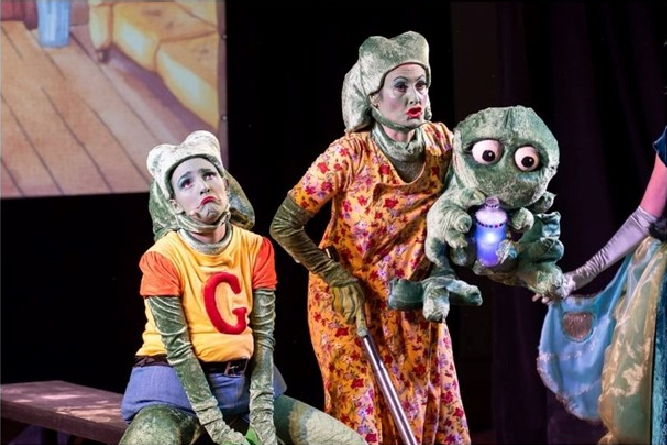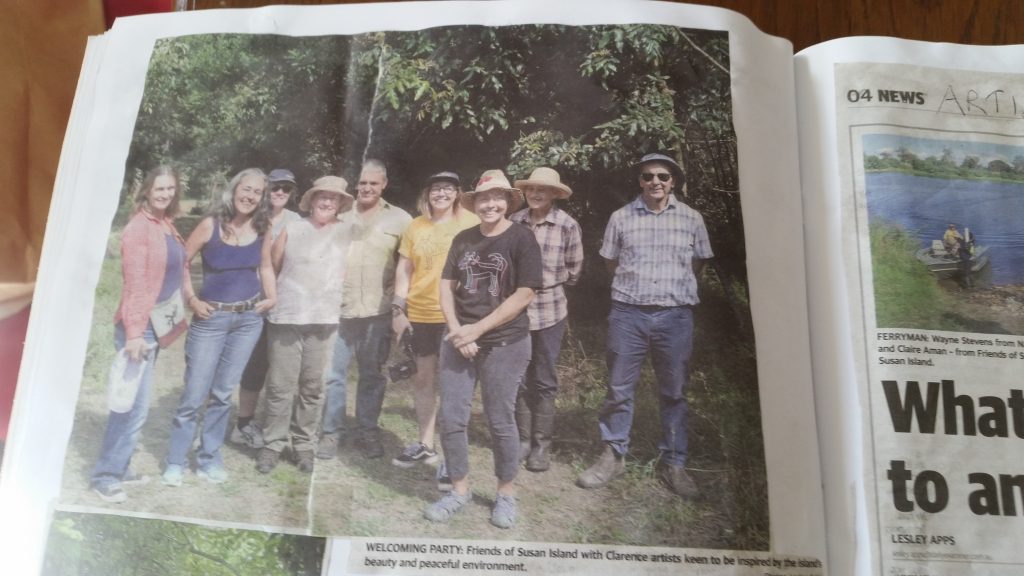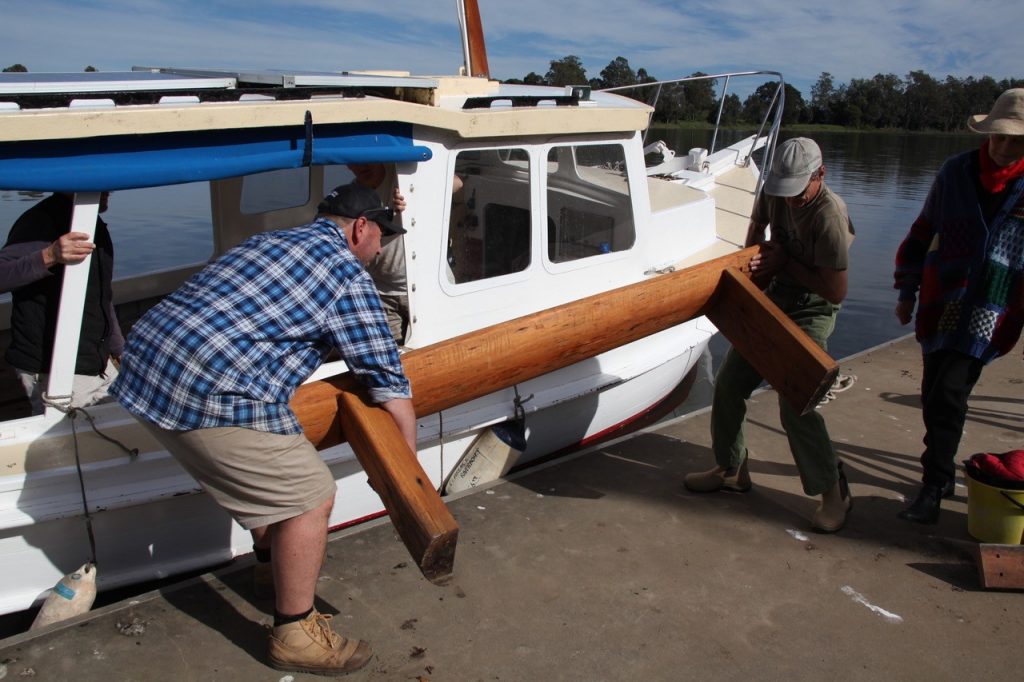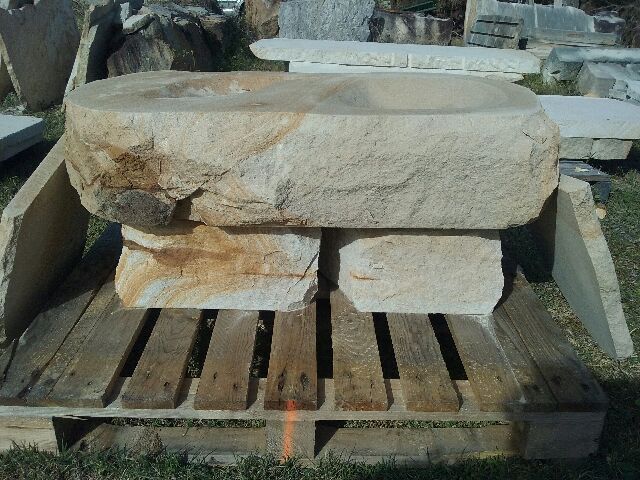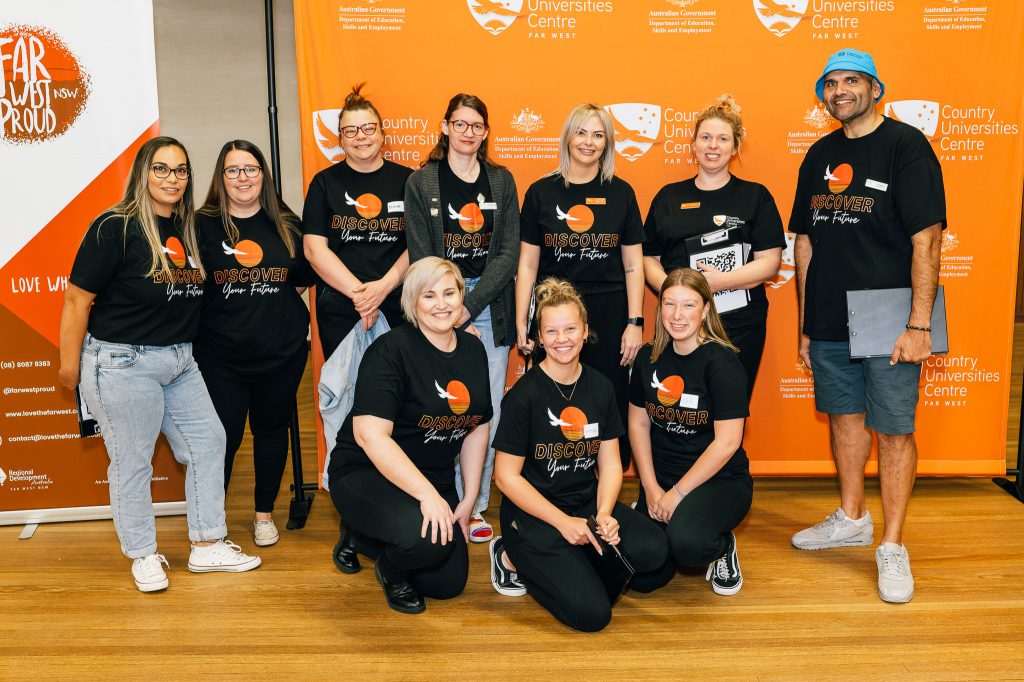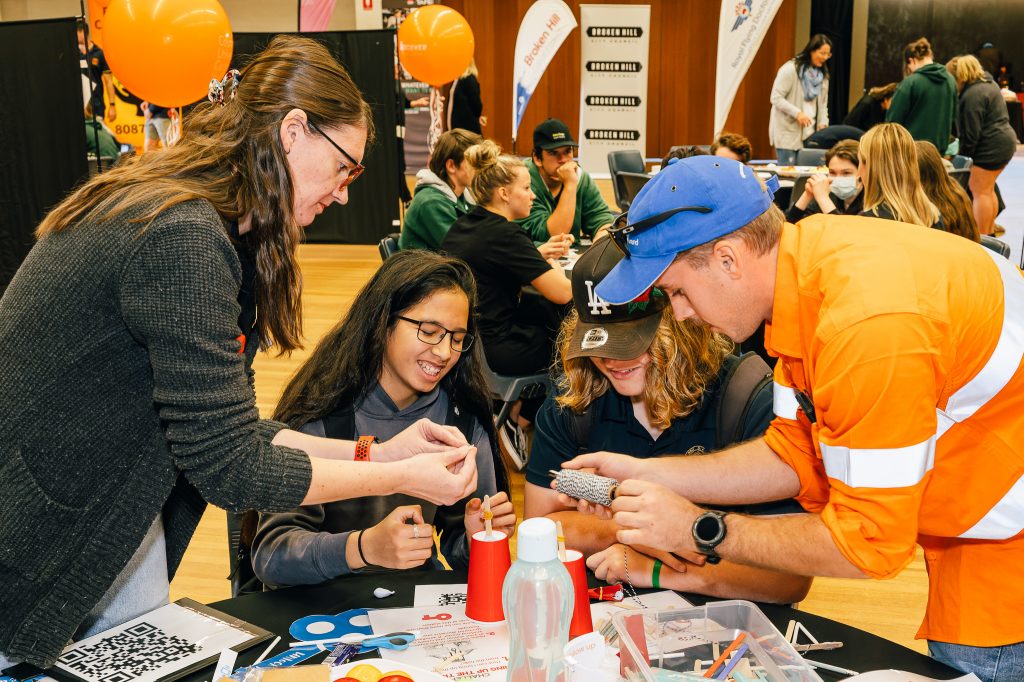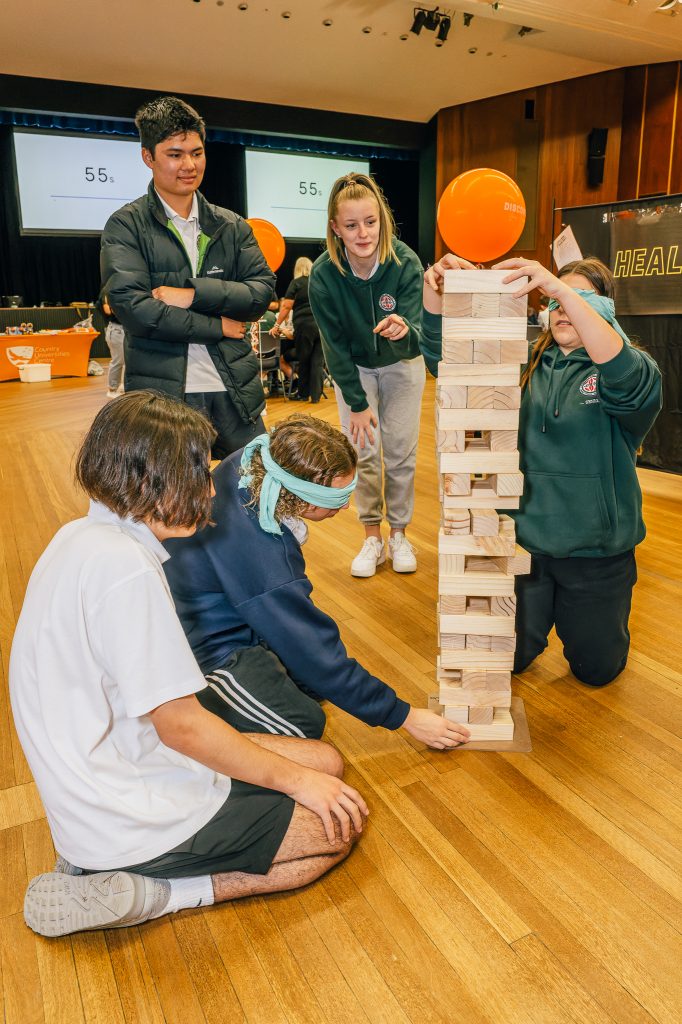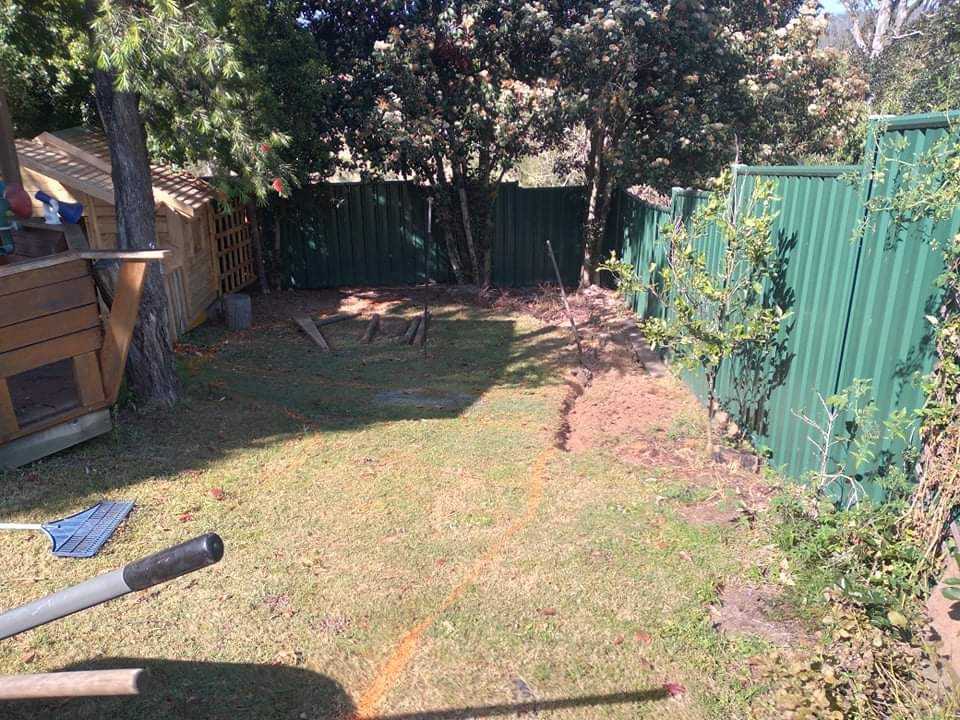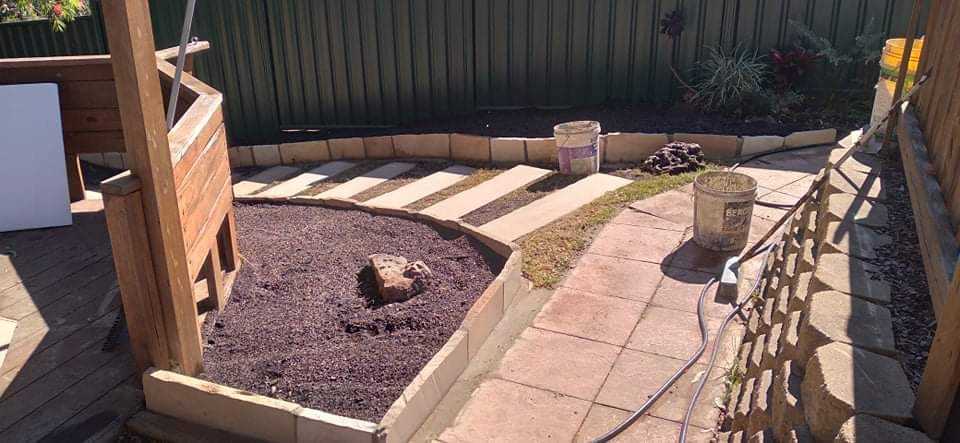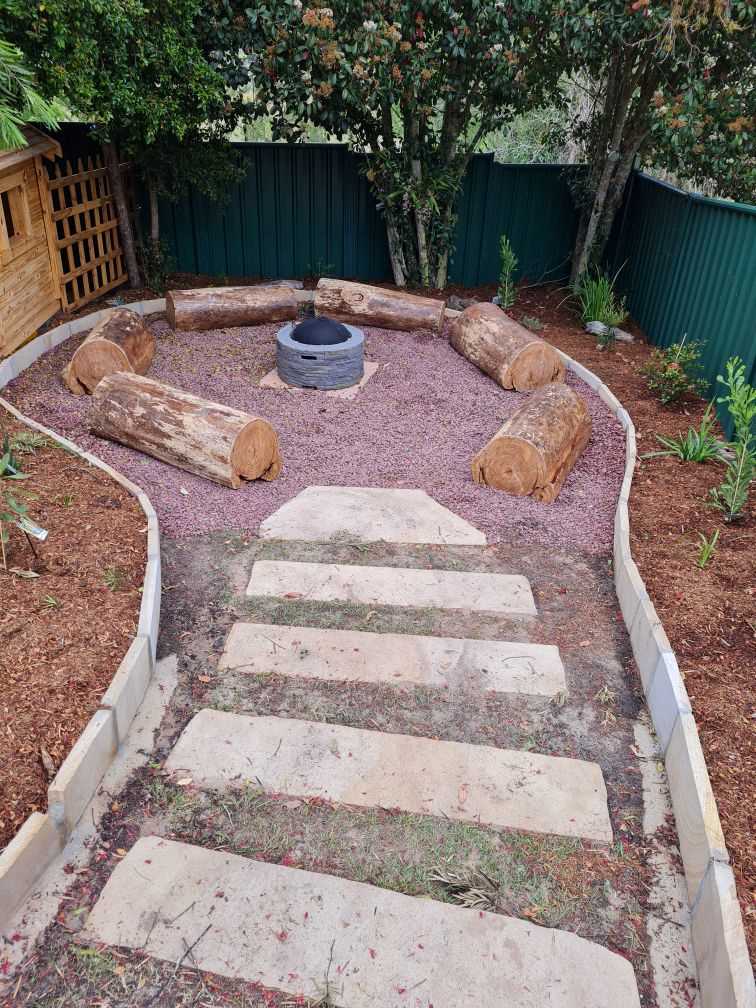Foundation for Rural & Regional Renewal (FRRR)
The Volunteer Marine Rescue (VMR) NSW service has offices along the NSW coast and operate a 24-hour volunteer crew to monitor the UHF maritime channel and be ready to respond to vessels in distress. During the 2019/20 Black Summer bushfires, this organisation continued to operate until power went down and volunteers joined with other local emergency services to support an initial evacuation of locals, neighbouring inland communities and tourists in the surrounds.
The Volunteer Emergency Services Fund was an FRRR program focussed on recognising the critical role that local first responders play in the lives of communities, not just in times of disaster, but every day. Funds were available solely for these groups to support their volunteers, enhance facilities or meet equipment needs to ensure future preparedness. For the VMR Bermagui branch, this opportunity aligned to the need to upgrade their facilities to enhance operations.
The Bermagui crew is ideally based in the Wharf precinct of the popular fishing and boating town on the south coast of NSW, however the office set up was not fit to enable effective training and radio monitoring to occur simultaneously. Their original application requested funding to refurbish the internal layout of the building to install a floor to ceiling glass partition to create two separate and fully operational rooms, with new training equipment, air conditioner and a generator. However, they secured alternative funding to cover the building costs, which allowed them to increase the scope of their project.
A variation was approved to allow VMR Bermagui to use the $24,933 FRRR grant, funded by the Lachlan and Sarah Murdoch Foundation, to purchase an air conditioner, generator, three trestle tables, 16 ergonomic chairs, whiteboard, wall cork board, refrigerator, microwave, desktop computer, printer, and software and security packages.
The electrical power generator means the base can now operate as a search and rescue coordination centre (SARCC) during times of emergency and/or crisis. During the 2019/20 Black Summer bushfires, the base couldn’t operate after 24 hours as all power in Bermagui was shut down, and their battery back-up system only had the capability of 24 hours emergency operation.
The upgrade has created a fit-for-purpose facility that now meets their operational requirements and has already benefited a range of people. At its broadest, it has, and will continue to, benefit anyone who is holidaying in or passing through Bermagui waters who uses the waters for boating, recreational fishing or requires some form of assistance on the waters. Importantly for the purpose of this grant program, a key benefit is for the current volunteers and all those who will take on that role in the future.
The new spaces include a quiet radio room, with zero background noise to radio transmissions, and capacity to hold training / meetings and discussions simultaneously, as noise interference is now better managed, and the facility has greater capacity to meet future requirements.
VMR Bermagui’s Grants Officer, Ian Grieg, commented: “Overall, the executive is most proud that we now have a fully capable, modern and well equipped facility that meets our operational needs today, but extends to meeting the communities needs in the future. The facility has a welcoming feel when members of the public come into the facility to interact with us on all matters boating. Additionally, we feel proud that the FRRR and the National Emergency Management Agency’s Black Summer Bushfire Recovery Grant supported us so willingly and had trust in us to deliver such a project to the community and our membership.”
The Cobargo Wellness Group formed following the bushfires that devastated the region on New Year’s Eve in the final hours of 2019. They exist to assist individuals and communities to thrive after crisis with emotional and physical support through creative projects, groups and events.
Ongoing impacts on local communities following bushfires, COVID 19 and floods meant an increased demand for their popular programs ‘Thriving After Crisis’, which is being developed into an online course, and ‘Ginger the Frog’, a theatre production for children and the young at heart. In response Cobargo Wellness Group sought to further enhance these programs to reach more local parents and children.
Grant funds of $10,000 from FRRR’s Investing in not-for-profit capacity program were used to bring in more hands and expertise to help with project planning, website design, and create a documentary of the Ginger the Frog production and journey. Ginger the Frog then toured three LGA’s – Coffs Harbour, Nambucca Shire and Hawkesbury Shire to great reviews.
‘Children wanted to go back and see the show straight after they’d just seen it, parents brought their friends for another session, the kids went crazy when it was time to join in with the activities and dancing’.
The Thriving After Crisis program was promoted alongside Ginger the Frog events to provide another support for families dealing with trauma. A future goal is to build on the scale of the show, with ambitions to tour it around the country and even internationally.
Around 800 children, parents and teachers were able to enjoy fun filled shows which included activities, dancing, laughter and wellness techniques. Cobargo Wellness Group reported it was a great opportunity for community connection, warmth, laughter, song and dance, all of which the group believes are the best way forward when recovering from a crisis. A further benefit to local residents is they will receive a digital version of the Ginger the Frog program for free along with access to the Thriving After Crisis program.
Upon reflecting on the success of the project, which involved hard work and long hours to bring it all together, Cobargo Wellness Group told us “joyous occasions create great memories, open the heart, and build connection and courage to work together as a community.”
“I’m also very proud of the fact that in my own community, organisations and the general community trust us now to offer quality programs and events.”
A modest $4,700 grant from The Yulgilbar Foundation Fund program has helped a community group transport a 215 kg ceremonial stone to Susan Island in October 2021 by a local builder who contracted a truck, forklift, excavator and barge. The excavator carried the stone to the gathering place, where a concrete footing had been laid by volunteers who supervised the process, and helped to manoeuvre the stone into place on the footing.
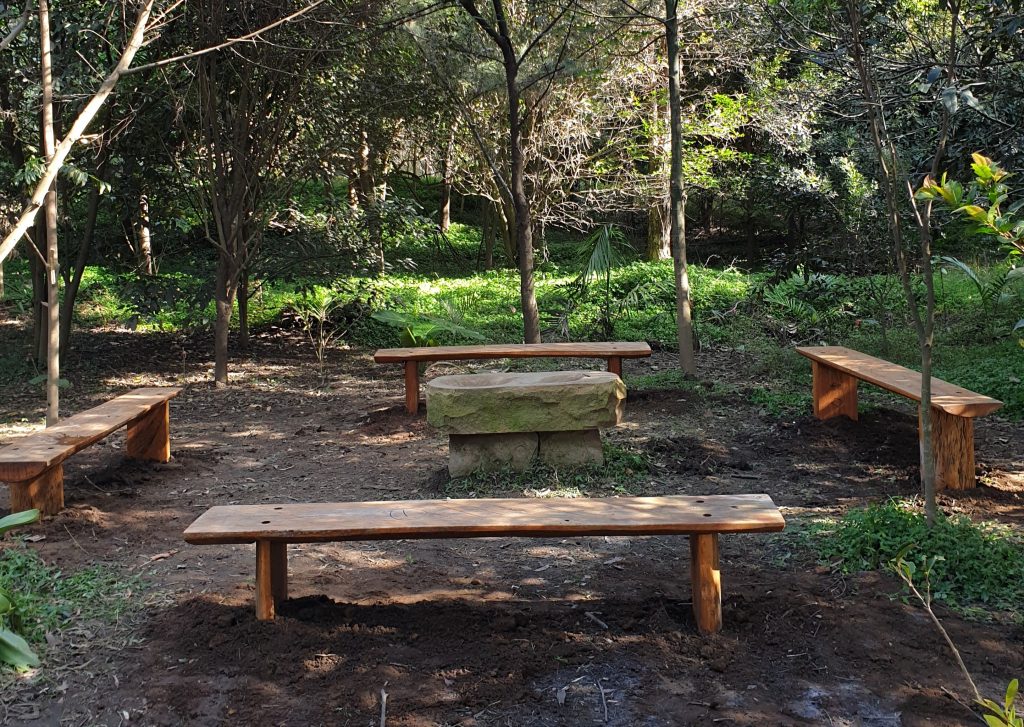
Four benches were purchased in November 2021. They are solid hardwood benches with galvanised fittings, each weighing about 80 kg. The benches were transported to the island in June 2022 by volunteers in a private boat. They were installed in deep holes on concrete footings, with cross-bolts added to keep them in place during floods. The installation was carried out by volunteers.
Native food, dye, medicinal and fibre plantings were carried out in August 2021, and May 2022. The plantings included Lilly Pilly, Red Kamala, Lomandra, Red Bean, Creek Sandpaper Fig, Red Ash, Moreton Bay Fig, Black Bean and Wattle (Acacia fimbriata). Planting was done by volunteers, and the trees were supplied as a contribution from the Susan Island Board. Around 250 trees, groundcovers and understory shrubs were planted between July 2021 and June 2022. Volunteers created a network of walking paths from the boat landing to the gathering place, passing through newly planted areas onto regenerating areas downstream.
“We have been trying to establish the gathering place since 2018, when the women’s group designed the stone. Finding a way to transport this 215 kg stone to the island was very problematic. We discussed ideas ranging from a helicopter with sling to elaborate pulley systems off small boats, but without money we couldn’t do anything. The funding let us focus our efforts, and we ended up asking a local builder to organise the logistics, which he did successfully. Without the funding, none of this could have happened. We thank you. It is really a lovely place now.”
Many regional students face a range of challenges and barriers to post-secondary education, including financial disadvantage, greater travel distances, and limited choice. In Broken Hill in Far Western NSW, fewer than 45% of year 12 students attended university, which is well below 80.3% of their metropolitan counterparts (Source: https://profile.id.com.au/).
In 2021, the Heywire Ideas Lab was held in Broken Hill, due to the cancellation of the Canberra Summit because of COVID. Broken Hill was chosen as the location because of the high number of Heywire competition entries from the community each year.
Twenty-seven students from Broken Hill High School spent a week at the inaugural Broken Hill Ideas Lab. In an incredible week full of storytelling, on-air interviews and developing ideas for change, Broken Hill youth had their voices amplified, and developed five exciting ideas to champion positive change for youth across Australia.
Common line of questioning sparks idea
Young people are asked almost daily what they want to do with their life, and what their future plans are – questions that can be overwhelming, particularly when you don’t yet know what careers are even possible. Even if you do, how do you get there? How can you connect with experts in the field and find the right contacts to start your dream career? It was this challenge that Ella, Angel, Kloe, Ellie & Emerson set out to address, coming up with the Discover Your Future project idea during the Ideas Lab.
Far West University Centre (UC) attended the ideas pitch and were so inspired by the Discover Your Future idea that they decided to work with the youth team to make it a reality in Broken Hill.
The idea and the voices of youth continued to be at the centre of the development and delivery of the project. The group took part in all stages of the project lifecycle and worked collaboratively with UC staff to implement the project.
Helping young people make decisions about their post-school life
With the help of a $7,269 FRRR ABC Heywire Youth Innovation Grant, funded by Findex Community Fund, Far West UC was able to collaborate with two of the initial group members to host a Discover Your Future event, aimed at giving young people a chance to explore and learn more about their future career options.
This day-long event held in May last year was an amazing opportunity for students from Broken Hill High School and Willyama High School to connect with local professionals and industry experts to learn about career paths in Far West NSW.
Close to 150 students were joined by 30 local professionals across 15 organisations, who provided an insight into a vast array of careers and employment opportunities. The day also created connections and increased young people’s confidence in seeking support to navigate post-school life.
Students reported feeling motivated to keep exploring different career opportunities and said that they learned about new careers that they had not considered before.
“It’s definitely helped a lot of the people here today already, that have come through. They are really excited about things that they could possibly go into,” said Emerson, co-creator of the Discover Your Future idea.
Industry participants reflected on how the day was incredibly successful due to its youth-centric, youth-driven approach with a platform for equal voices for youth.
“It’s great to see young people so engaged in a different way than we normally do around careers. It’s open, and they have the opportunity to talk and ask questions, and at the same time giving us some great information about what they want in Broken Hill,” said Dionne, from Broken Hill Council.
From Ideas Lab to reality …
Far West UC said that the grant made it possible for them to bring the project to life and stay true to the original intent of the project idea. Funding covered venue hire, catering, videographer and photographer, marketing and advertising, and resources for activities.
Ensuring that the event met the needs of the young people and keeping them involved as event organisers was critical to the success of the project.
“We didn’t think anything would happen with it. Like we just thought it would be something we thought of and created but we didn’t think it would actually come this far to like the actual day now, it feels very surreal,” Emerson said.
Mutually beneficial relationships created
Far West UC is pleased to have developed a strong relationship with youth and is looking at further opportunities to work together in supporting local youth to explore initiatives to improve youth self-efficacy in navigating post-school transitions. Furthermore, through consultation and collaboration with high school partners the Discover Your Future team was successful in coordinating the attendance of students from year 10, 11 and 12 from both local high schools.
Danielle Keenan from Far West UC said that while the primary aim of the project Discover Your Future was to increase the visibility of career and education options within our region, it also moved to address wider community issues such as the retention of young people, workplace development, economic growth and social outcomes.
She also said that feedback from industry evaluations suggests the event was seen as a worthwhile experience for the local industry, with 86% of survey responses stating that they would be likely or very likely to attend another event. An anonymous quote from the evaluation survey captures the positive feedback: “This event was extremely well executed. The Discover Your Future event engaged young people in a variety of interesting and exciting ways which kept the energy level of the participants high and created an opportunity for more open dialogue during the career engagement section of the session”.
Most importantly, almost 80% of students who completed the post-event survey (67 responses) said they have learned about new careers that they have not considered before.
Danielle said, “The success of the event hinged on the solid and diverse engagement of the community across multiple employment sectors and education stakeholders. The project team developed a strong communication strategy that was able to highlight the mutual benefit of professional involvement in the careers networking event. Subsequently, the project also proved to be an innovative and creative contribution to bolstering the community’s workforce attraction and youth retention strategies.
“In turn, Discover Your Future was able to increase exposure to a vast array of careers and employment opportunities and increase young people’s confidence in seeking support to navigate post-school life.”
Local NFP leaders invited to join a roadmapping workshop
The Foundation for Rural & Regional Renewal (FRRR) and Bega Valley Shire Council are pleased to announce the start of a new initiative under the $1.3 million Australian Government Black Summer Bushfire Recovery Grants Program.
Investing in Rural Community Futures (IRCF) Bega Valley – Resilience Connection and Place Project builds on the work done over the last year through FRRR’s Investing in Not-for-Profit Capacity in Regional NSW (INFPC) program.
IRCF Bega Valley will support not-for-profits (NFPs) by strengthening their capacity to service local communities through a mix of on-the-ground support, using local facilitators and access to workshops and training.
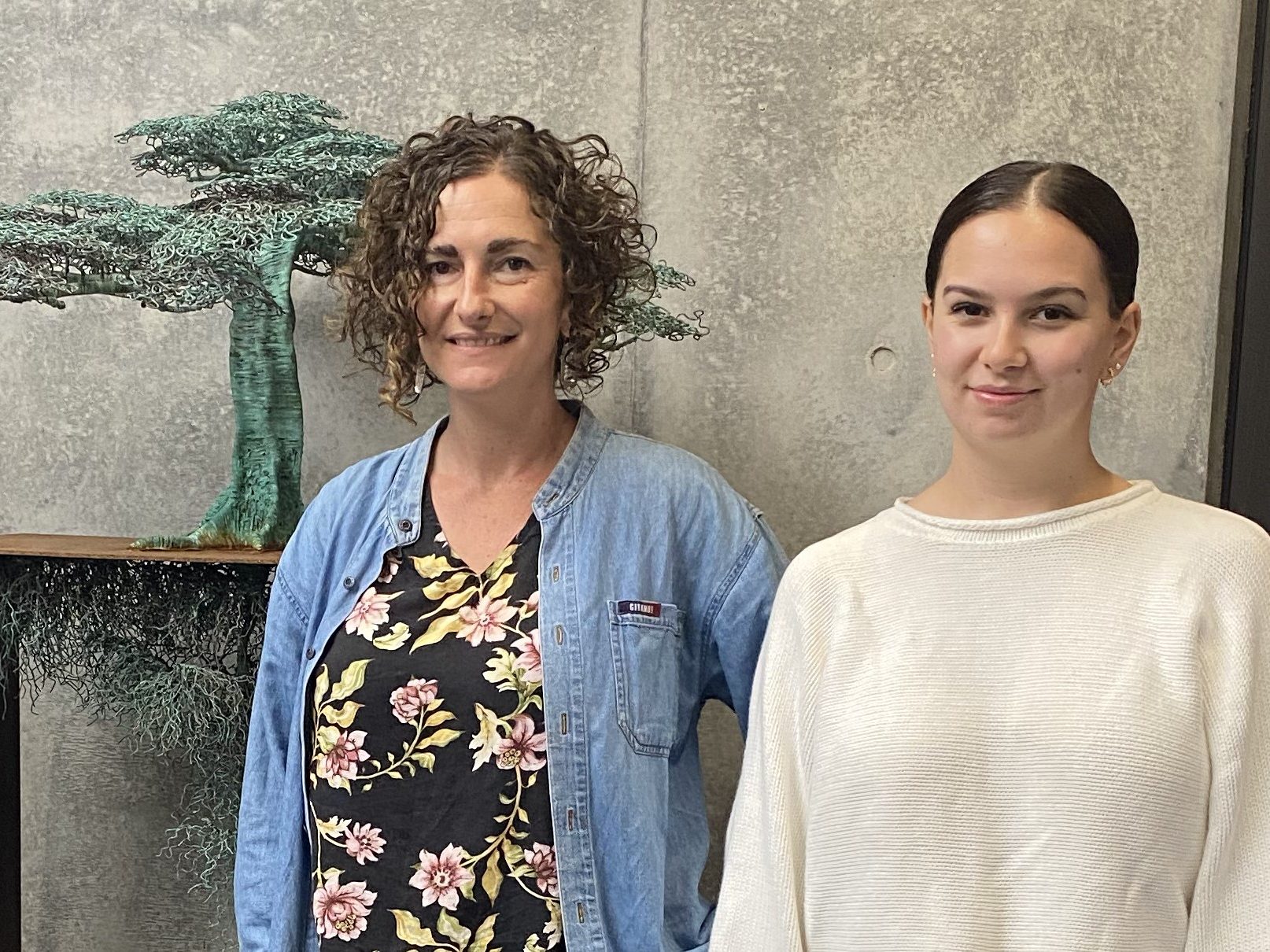
Bega Valley Shire Council is hosting two part-time facilitators, Leah Szanto and Bree Morgan. The facilitators will be connecting with groups across the shire to identify ways in which the local NFP sector can strengthen and adapt to changing community needs in order to thrive. NFPs will be invited to participate in a collaborative planning process aimed at building their capacity and ensuring the sustainability of individual organisations and projects through networking, skill development and community-led initiatives.
The IRCF model is currently being implemented in seven other communities across NSW. A key element is a road mapping process where goals and priorities are decided by the community, for the community. Work has already been done on this through the INFPC program over the last 12 months and now a roadmap will be designed at a workshop in Bega on Tuesday 14 March at 9:00 am. All local NFP leaders are invited to attend and registration is essential via https://frrr-bvsc-workshop.paperform.co/.
FRRR’s IRCF Program Coordinator, Carolyn Ardler, said this locally co-designed program will help the Bega Valley become even stronger than it was before the bushfires.
“It’s been great to see support being channelled into Bega Valley communities following the Black Summer bushfires, but we have also heard that it’s been overwhelming in many respects,” Ms Ardler said. “This new program will allow NFP community organisations and local leaders to work together to identify gaps in their capacity that may be hampering their ability to make the most of the funding and support that they have access to.
“It will also strengthen connections between NFP organisations and other communities where it operates. We’ve seen groups collaborate on projects that are truly transformational for their community, so it’s exciting to see the program kicking into gear.”
Council’s Community Development Coordinator, Chani Keefer, said it was great to be partnering with FRRR on this program.
“The goal of IRCF Bega Valley isn’t just to recover from the bushfires, but also to make our community stronger for the future,” Ms Keefer said. “This model will allow local community leaders to prioritise where they need to build their skills and capacity so they can work collectively towards a socially, economically and environmentally stronger Bega Valley.
“Having local facilitators on-the-ground has proven to be critical in other communities where this model has been implemented.”
To find out more about the IRCF program or to get involved, visit ircf.frrr.org.au/Bega or contact FRRR Carolyn Ardler, IRCF Program Coordinator – South Coast on 1800 170 020.
FRRR announced today that they have appointed two facilitators in the Shoalhaven region to support the ongoing delivery of their Investing in Rural Communities Futures program.
These positions are being funded using part of the $1.3 million investment made by the Australian Government, through the Black Summer Bushfire Recovery Program, which FRRR announced in November 2022.
The Investing in Rural Community Futures (IRCF) program has operated in the Shoalhaven and South Coast area since 2020, thanks to support from The Snow Foundation and Bendigo Bank, through their Community Enterprise Foundation. It is designed to help increase the capacity of the myriad of not-for-profit organisations who are so critical to the sustainability and vibrancy of the area.
Over the last three years, not-for-profits in Nowra, Ulladulla, Bateman’s Bay and more recently the Bay and Basin communities have come together to develop a roadmap of the assistance and skill-building that will help local NFPs to prepare for, respond to and recover from natural disasters, as well as the opportunities in the community. The most recently Federal Government funding means that support can now extend to Lake Conjola and Kangaroo Valley, areas that were severely affected by the Black Summer Bushfires.
The appointment of the two facilitators is the latest stage in the roll out of the funding from the Australian Government. That funding is also being used to support leadership and skill development, such as participation at the Art of Hosting workshop which is underway at Willinga Park in Bawley Point this week.
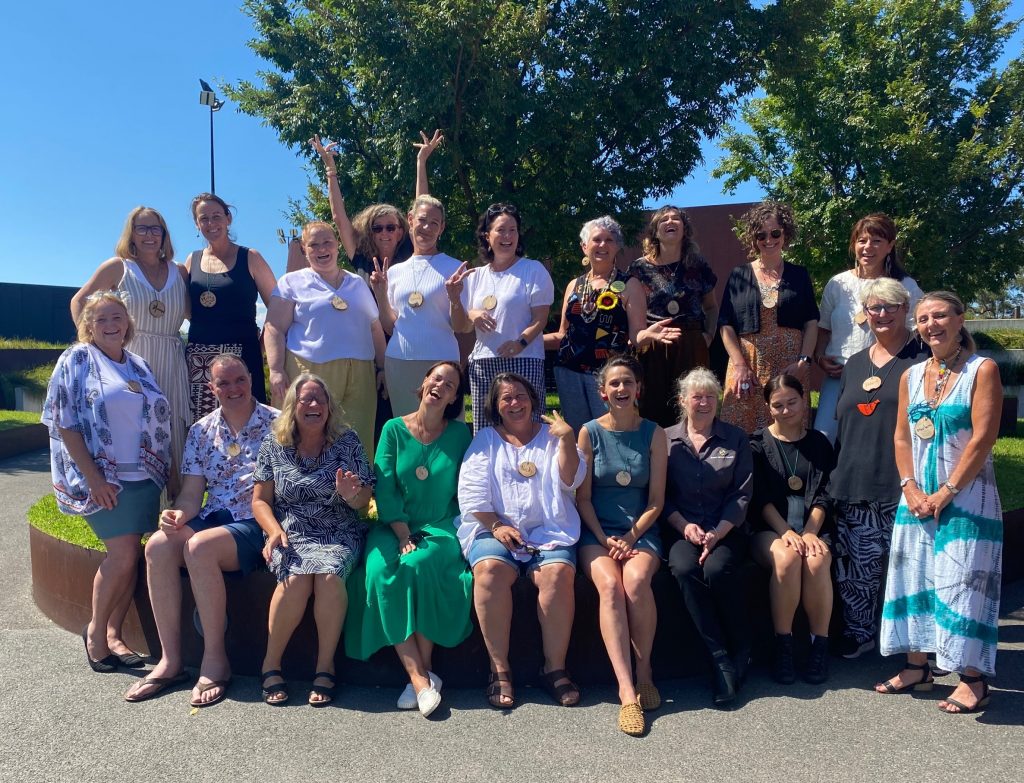
Attendees at Art of Hosting workshop 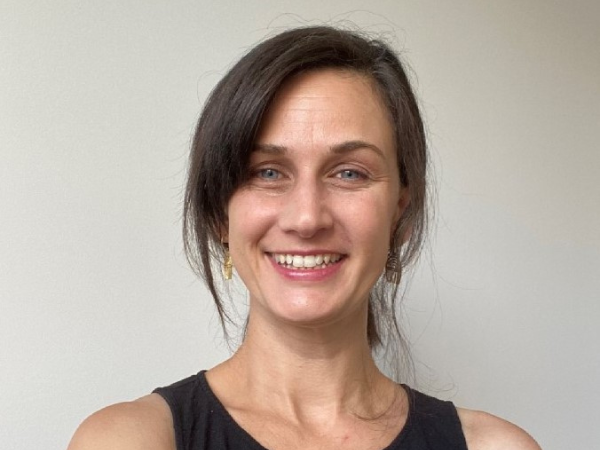
Kate McBride, Bay and Basin Facilitator 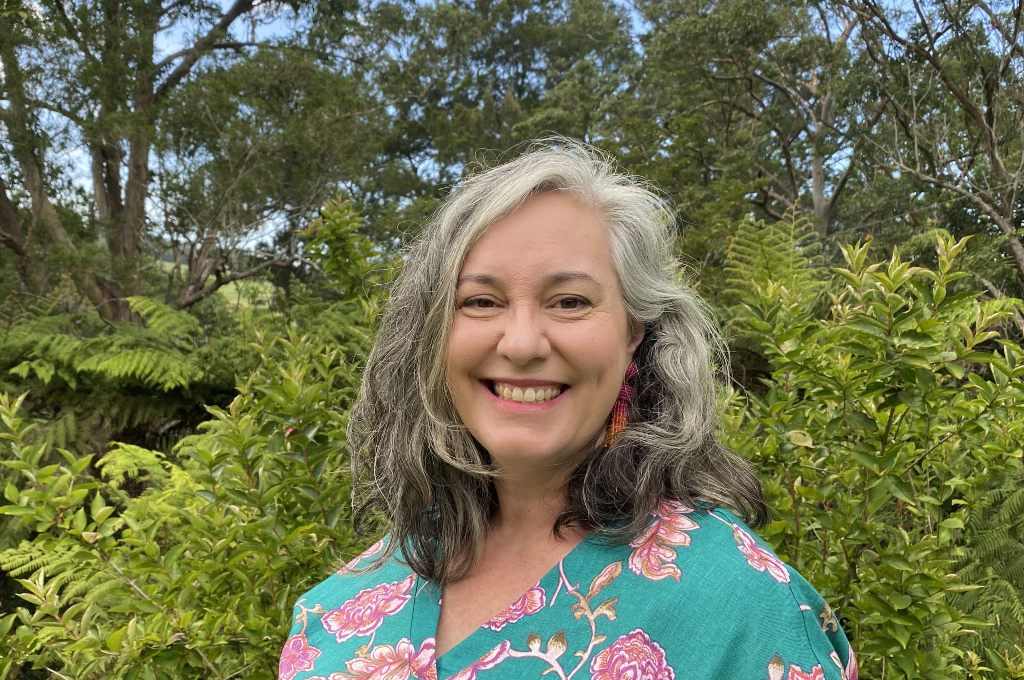
Meg Stratti, Nowra and Kangaroo Valley Facilitator
Meg Stratti will be working with communities in Nowra and Kangaroo Valley. She has lived in the Shoalhaven for the last 10 years, working to support local communities primarily through roles in adult education.
Kate McBride, who will work with Bay & Basin communities has lived on Yuin Country for around 20 years, and brings more than 15 years’ experience in capacity building and community engagement within not-for-profits (NFPs), grassroots community organisations and local government sectors.
Meg and Kate join Monique Carson (looking after Ulladulla and surrounds) and Jules Klugman (Batemans Bay) in working with community groups across the South Coast.
FRRR’s IRCF Program Coordinator for the South Coast, Carolyn Ardler, says that the additional Government support is a great opportunity to build upon the work they have been doing in the local communities with the support of philanthropic partners through the IRCF program.
“This workshop is the first chance that we’ve had to bring the facilitators together with local community leaders. All of them are attending the Art of Hosting workshop, which will enhance everyone’s ability to engage in conversations about the issues that matter. Together with the roadmap, this will ensure we’re all on the same page and can continue to work together to ensure local leaders have the tools they need to work towards their goals and priorities.
“This session is just one example of how we will continue to use this program to make sure the communities themselves are leading the conversation when it comes to their recovery,” Ms Samuels explained.
Matt Dell, President of Business Milton Ulladulla and Community Connect Southern Shoalhaven, says it’s rewarding to see the funding having such a direct benefit on the Shoalhaven communities.
“Enormous progress has been made in our local areas to recover after the devastating Black Summer fires. The IRCF program has been vital in supporting the community to rebuild and reconnect. It is absolutely essential the ICRF program continues with additional resources to empower our recovery and future resilience.”
Other upcoming initiatives include a leadership training program, which is being led by the Australian Rural Leadership Foundation, plus other sessions prioritised by the local community.
To find out more about the IRCF program in your community or to get involved, visit ircf.frrr.org.au or contact FRRR on 1800 170 020.
The community of Copmanhurst in the Clarence Valley in New South Wales is a strong and resilient group of around 300 people. In 2019/2020, Copmanhurst was severely impacted by the Black Summer bushfires, as well as flooding. For so many in the area this created a stressful environment. Many families were forced to evacuate and sadly leave livestock and other animals behind. Between the financial and emotional stress and hardship caused by these disasters, the community also saw a rise in mental health incidents.
For the youngest residents, stressful family situations, orange smoky skies and the loud noises from helicopters landing behind the preschool was causing a lot of anxiety.
Copmanhurst Pre-School wanted to create a space that would support the recovery of young children and provide a place nurtures respectful sharing of thoughts, ideas and knowledge. Their plan was to construct a Healing Circle that included a native garden. To help achieve this goal, the Pre-School secured a $8,650 grant through The Yulgilbar Foundation Fund.
They were able to establish the Healing Circle and also repair and upgrade a memorial of a past student. The memorial stone was moved to the Healing Circle and the family was very pleased to be included and remembered.
The garden was created under the guidance from local Elders and Ngroo, a local Aboriginal education program, to incorporate native plants and ideas for the healing circle including logs sourced from Bundjalung Country.
Since completing the project, the average day now begins around the healing circle for a talk before everyone goes off to play. This gives the children and educators an emotionally meaningful way to start the day in an area they all feel, safe, secure and supported.
Because of COVID lockdowns and restrictions, there was a delay on the opening celebrations for the new space. The Pre-School wanted to invite all the community services to the opening so they could acknowledge and thank them for all the hard work they did to keep their community safe during the fires and floods.
Earlier this year, the FRRR team heard directly from Kempsey Shire Council, who had recently received a $56,960 grant for the Macleay Valley River to the Sea Festival through the Future Drought Fund’s Networks to Build Drought Resilience program, co-funded by the Australian Government and a private donor.
The festival was a creative way to increase opportunities for diverse people and communities to participate in networking events. A series of farm gate tours was also a great way to improve regional branding and recognition of local food agri-systems. The festival built knowledge and understanding of the risks posed by drought and climate change through workshops for primary producers and broadly contributed to building a positive community culture and strengthened connections.
The Kempsey Shire Council presentation also highlighted the broader impact of floods. Having experienced 19 climate disasters in a decade, Kempsey was labelled ‘the most disaster-prone region in Australia’ by The Australian in 2019. Since then, there have been four flooding events, with three of them taking place in 2022 alone.
The Council team shared that an increasing number of farms were at risk of closure due to recent flooding events with around 45% of cattle in the lower Macleay leaving the shire due to continued wet and a 25%-35% loss of avocado trees. On top of that, there were large scale loss of oysters, flower production was impacted and mud fever, foot abscesses, slips and trips all became more common in horses.
The presentation gave a raw and up-to-date glimpse into the challenges being faced by those in the agricultural sector. It also highlighted that to be sustainable both economically and environmentally, change is needed. For agriculture to thrive, communities and agribusiness must be given the tools and resources they need to adapt.
The Macleay Valley River to the Sea Festival was a great example of this kind of opportunity in action, allowing farmers to share their stories and raise awareness around the positive on-farm diversification being achieved in environments impacted by climate change.
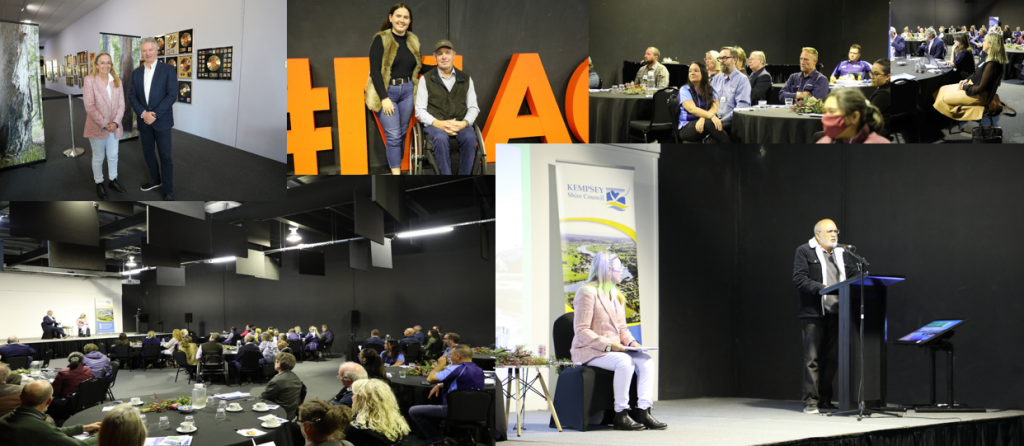
27 community groups in disaster impacted areas of rural NSW and QLD to receive funding
FRRR, in partnership with Suncorp and GIO, has awarded $500,000 to 27 community groups and local not-for-profits (NFPs) to support recovery initiatives in rural communities impacted by the East Coast Australia floods in February and March 2022.
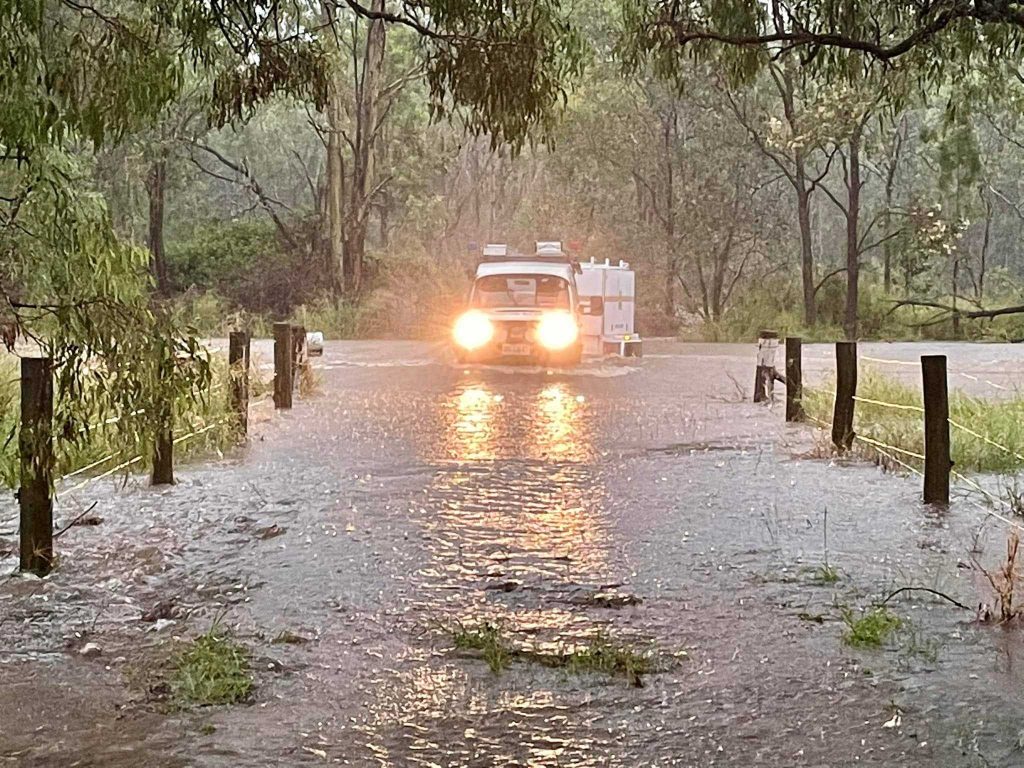
The grants, which are through the Rebuilding Futures program, range from $4,129 to $25,000.
They will be used to fund a range of projects, including equipping community facilities to be prepared for disasters, mental health training, community resilience and healing events, food security initiatives, environmental restoration, buying emergency equipment, restoring flood damaged infrastructure, developing preparedness plans and mentoring initiatives.
This is the second round of grants to come from the $1 million pledge the Suncorp Group made to FRRR to support recovery and preparedness activities in remote, rural and regional communities impacted by natural disasters.
Suncorp Group Head of Disaster Response & Customer Experience, Cath Stewart, said the diversity of applications shows the importance of responsive and flexible funding.
“The grant applications we received in this round are all the proof needed to reaffirm community leaders are best placed to understand exactly what the people in their areas need at this moment in time.
“These communities were all impacted by the same natural disaster, yet it’s very clear that they have diverse needs based on the point that they’re at on their road to recovery. We are pleased to be able to support a range of initiatives from building organisational capacity and giving locals the opportunity to develop their skills, to investing in life saving equipment and improving access to services,” said Ms Stewart.
Nina O’Brien, Disaster Resilience and Climate Solutions Lead at FRRR, said the grant recipients have shown commitment to the long-term recovery and resilience of their communities.
“People have had their lives turned upside down, yet they’re determined to work together to make sure their communities bounce back stronger than ever from the floods. Thanks to the generous support of GIO and Suncorp, we are able to offer the funding that will allow them to address their unique community recovery needs for rebuilding their future, and that’s exactly what each of the NFPs and community groups receiving funding are on a mission to do.
“Each of these initiatives, whether it be an upgrade to existing community facilities, the renewal of shared social spaces, improved community facilities, the purchase of emergency equipment or mental health support, is a practical response that will support long term recovery, which is exactly what is needed in the areas affected by floods and storms in early 2022.
“Recovery will take many years and every community has different needs and different capacity levels when it comes to tackling the recovery process. That’s why it’s so crucial that we provide these local groups with the support they need to build back better and design their own path to recovery, when they are ready,” said Ms O’Brien.
Among the 27 projects funded this round are:
- Surf Life Saving Far North Coast Branch Inc, Byron Bay, NSW – Mental Health Training and Support – $9,650 – Build community resilience through delivering a Mental Health Training and Support program to life savers, equipping them with skills to support themselves and their community.
- Resilient Lismore Incorporated, Lismore, NSW – Resilient Lismore – community recovery and connection events – $25,000 – Bolstering resilience to disaster by strengthening community connections and increasing mental health and wellbeing via a series of community events to be held around the anniversary of the February 2022 flood event in Lismore.
- Wilsons Creek Community Hall Inc, Wilsons Creek, NSW – Wilsons Creek Community Hall Solar Storage Battery – $12,240 – Build capacity of Wilsons Creek Community Hall to stay in contact by purchasing a solar battery to ensure power supply during extreme weather events.
- The Trustee for Top Blokes Foundation, Beaudesert, QLD – Building the resilience of vulnerable young men in the Scenic Rim – $25,000 – Improve the mental health and community engagement skills of at risk and disadvantaged young boys to bolster recovery in flood impacted communities.
- Glastonbury Hall & Recreation Association Inc, Glastonbury, QLD – Rebuilding for the Future – Glastonbury Disaster Centre Hub – $25,000 – Build capacity at Glastonbury Hall to support community with adequate kitchen facilities during refuge from disasters and to support community connection activities.
- Tansey Show Society Incorporated, Tansey, QLD – Upgrade facilities at Tansey Showgrounds – $15,000 – Boost organisational resilience and community wellbeing by repairing the flood damaged shower blocks at Tansey Showgrounds.
The full list of grant recipients and their projects is below.
More information on the Rebuilding Futures grant program is available on FRRR’s website.
| Organisation | Project | Location | Grant | |||
|---|---|---|---|---|---|---|
| NEW SOUTH WALES | ||||||
| Agape Outreach Inc | After the Floods - Food Insecurity & Poverty Support - Caring for the Community Support community members impacted by floods to access food relief in an environment of insecurity and homelessness risk. | Tweed | $15,000 | |||
| Byron Region Community College | Demonstration Garden for Sustainability and Resilience Strengthen the social fabric of Byron with a sustainable and resilient garden at the adult learning centre designed to inspire and educate community with an interactive space also supporting mental health and wellbeing. | Mullumbimby | $24,630 | |||
| Casino Indoor Stadium Association Inc | Blue Light Nights Build community capacity of children and young people in Casino with equipment for Blue Light Night events such as discos that will develop relationships with local police and support learning event management skills. | Casino | $10,572 | |||
| Friends Lismore Regional Gallery Inc | Beyond Bricks and Mortar: The Art of Renewal in Lismore Renew and activate the arts community in Lismore through tours of neighboring galleries, open art studios and panels to bolster regeneration of artist practice and broad community engagement. | Lismore | $12,295 | |||
| Human Nature Adventure Therapy Ltd | Thrive Outside: A Recovery and Resilience Project Support young people who experienced trauma through the flood events to build resilience through therapeutic outdoor group activities. | Ballina | $19,920 | |||
| Holding Hands Undergound | The Grief and Gratitude Project: A Process for Collective Care and Connection in a Time of Major Crisis Supporting community connection with an arts based event to enable collective recovery activity with themes of grief and gratitude. | Mullumbimby | $25,000 | |||
| Hunter Prelude Limited | Hunter Prelude Supported Playgroups Increase support to playgroups with additional allied health or teaching staff that enhance the engagement of parents and address issues of isolation and trauma within the families. | Kurri/Cessnock | $19,400 | |||
| Nambucca Valley Phoenix Limited | Roof Replacement Ceramics Yurt & Kitchen Replace damaged roofing at the ceramics yurt and kitchen annex to increase resilience of the facility's infrastructure to weather and support ongoing community activities. | Bowraville | $25,000 | |||
| Northern Rivers Community Healing Hub - Rekindling the Spirit Limited | Northern Rivers Community Healing Hub in Action Build capacity for piloting a transition to paid / volunteer model of community healing practices that will support holistic recovery now and ongoing with strong health partnerships. | Lismore | $24,750 | |||
| Resilient Lismore Incorporated | Resilient Lismore - Community Recovery and Connection Event Bolstering resilience to disaster by strengthening community connections and increasing mental health and wellbeing via a series of community events to be held around the anniversary of the February 2022 flood event in Lismore. | Lismore | $25,000 | |||
| Surf Life Saving Far North Coast Branch Inc | Mental Health Training and Support Build community resilience through delivering a Mental Health Training and Support program to life savers equipping them with skills to support themselves and their community. | Byron Bay | $9,650 | |||
| The Big Scrub Orchestra | Modern Band Healing Through Songwriting and Music to Improve Resilience and Wellbeing for Young People Impacted by Floods Build the resilience of school children impacted and displaced by flooding in Grafton, Lismore and Casino through musical workshops that will culminate in a performance at the local Jacaranda Festival. | Grafton | $25,000 | |||
| The Colony Bees Association Inc | Pollinate Country Rebuilding pollinator health and habitat in the Northern Rivers, by establishing new beehives, pollinator sanctuaries and native habitats. | Ballina | $18,202 | |||
| Volunteer Marine Rescue NSW | Capacity Building for the Improved Response to Emergencies with Our Region Build capacity of Volunteer Marine Rescue to support flood impacted communities in the future and enhance their everyday emergency operations with a trailer to transport a rescue boat. | Brunswick Heads | $15,000 | |||
| Wesley Community Services Limited, trading as Wesley Mission | Wesley LifeForce Suicide Prevention and Mental Health Resilience Project Support mental health and reduce stigma associated with suicide through training to develop skills and understanding in the Coffs Harbour community. | Coffs Harbour | $22,000 | |||
| Wilsons Creek Community Hall Inc | Wilsons Creek Community Hall Solar Storage Battery Build capacity of Wilsons Creek Community Hall to stay in contact by purchasing a solar battery to ensure power supply during extreme weather events. | Wilsons Creek | $12,240 | |||
| QUEENSLAND | ||||||
| Glastonbury Hall & Recreation Association Inc | Rebuilding for the Future - Glastonbury Disaster Centre Hub Build capacity at Glastonbury Hall to support community with adequate kitchen facilities during refuge from disasters and to support community connection activities. | Glastonbury | $25,000 | |||
| Highfields Pioneer Village Museum and Park Inc | Ramp It Up Repair pathways and ramps impacted by flood waters to provide access for disabled and elderly visitors. | Highfields | $4,129 | |||
| Kerry Memorial Hall | Kerry Valley: Diversity, Resilience & Strength (DRS) Upgrade historical community facilities with infrastructure materials and equipment to enable compliance for evacuation centre and to strengthen community wellbeing. | Kerry | $7,293 | |||
| Kin Kin Community Group Inc | Volunteer and Emergency Response Community Hub Build capacity through setting up local facility to support community during disasters. | Kin Kin & Como | $25,000 | |||
| Lowood Group State Emergency Service Financial Support Unit Inc | Lowood Emergency Back Up Generator Build the capacity of Lowood SES through the purchase of a generator to ensure shed operations during power outages to support crew and community needs. | Lowood | $23,485 | |||
| Mooloolah Valley Community Association Inc | Emergency Power for the Community Centre Build the organisational capacity of the Mooloolah Valley Community Centre with the purchase of a solar battery for power supply in extreme weather events. | Mooloolah Valley | $25,000 | |||
| Rathdowney and District Memorial Grounds Association Incorporated | Caravan Park Hot Water & Dryer Build community resilience and organisational capacity with the purchase of a washing machine and clothes dryer to support tenants, visitors, and the community at the volunteer run caravan park in Rathdowney. | Rathdowney | $7,784 | |||
| Tansey Show Society Incorporated | Upgrade Facilities at Tansey Showgrounds Boost organisational resilience and community wellbeing by repairing the flood damaged shower blocks at Tansey Showgrounds. | Tansey | $15,000 | |||
| The Trustee for Raise Foundation | Raise Mentor Program - Pittsworth State High School Build resilience in young people affected by floods with supported mentoring at Pittsworth State High School. | Pittsworth | $25,000 | |||
| The Trustee for Top Blokes Foundation | Building the Resilience of Vulnerable Young Men in the Scenic Rim Improve the mental health and community engagement skills of at risk and disadvantaged young boys to bolster recovery in flood impacted communities. | Beaudesert | $25,000 | |||
| Toowoomba Hospital Foundation | Saving and Preserving the Darling Downs Health Museum Weather Affected Collection and Displays Support restoration and disaster preparedness planning to save the flood impacted collection of Toowoomba Hospital Health Museum and train volunteers to respond effectively in future emergency situations. | Toowoomba | $16,560 | |||
The Foundation for Rural & Regional Renewal today welcomed the expansion of the place-based Investing in Rural Community Futures (IRCF) program to the Bega Valley, thanks to an injection of $1.3 million through the Australian Government’s Black Summer Bushfire Recovery Program.
IRCF is a grassroots program aimed at building and supporting the capacity of not-for-profits so they in turn can support social, economic and built environment recovery. By working locally over the next two years, it aims to strengthen local not-for-profit (NFP) organisations and ultimately enable them to thrive, which in turn will have a positive impact on community wellbeing and sustainability. It is based on a mix of local on-the-ground support, access to workshops and training and collaboration with local community groups.
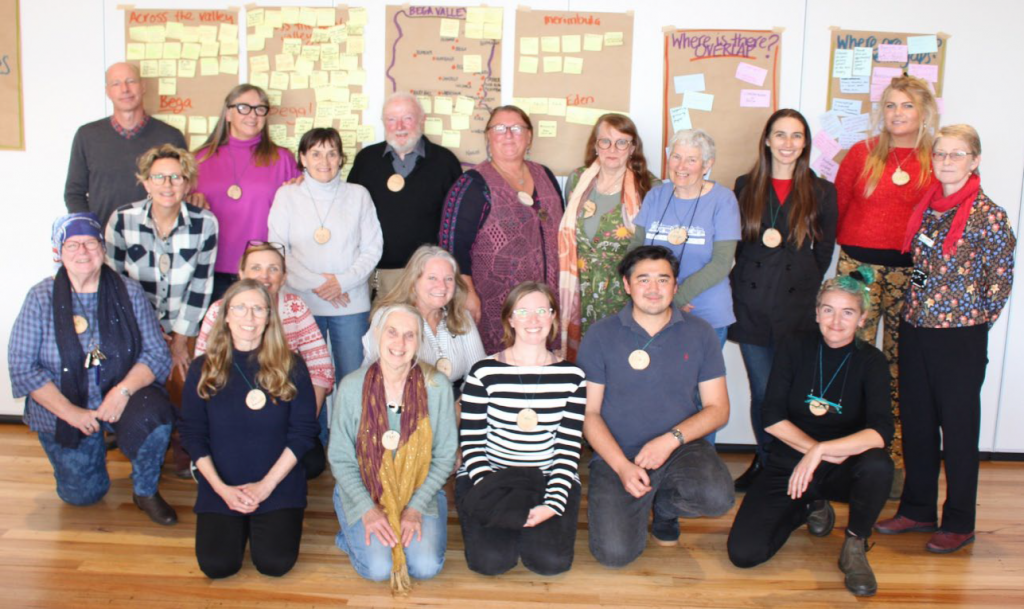
The IRCF Bega Valley – Resilience Connection and Place Project builds on the Investing in Not-for-Profit Capacity program, which FRRR has been running in Bega over the last 18 months.
The investment will allow for two community development project officers to be appointed – one full time, one part-time – in partnership with the Bega Valley Shire Council. They will work closely with local NFP organisations and community groups, including the three Local Aboriginal Land Councils (LALC’s).
An important part of the program will be to develop a ‘roadmap’ for the local not-for-profit and community sector, to identify common areas of interest, shared assets and needs for capacity building. Once these needs are identified, the IRCF Community Development Project Officers will develop relevant resources and help facilitate training and other support to help NFP’s to maximise the impact of their work. They will also provide support in accessing other grant funding for the various groups that get involved.
The program will also deliver leadership training into the community, thanks to a partnership with the Australian Rural Leadership Foundation.
FRRR’s People Programs Portfolio Lead Deb Samuels says that this really is a collaborative, community-driven program.
“FRRR has worked hand in hand with community groups over the last 20 plus years, so we know that locals are best placed to know what they really need. Our role is simply to help facilitate the support that they need – and that’s exactly what this program is going to do.
“We’ve rolled out this model successfully now in seven other locations across NSW, so we know that this approach of bringing local NFPs and community groups together really works, especially when you combine it with on-the-ground facilitators. Together, they can identify common issues and opportunities and collectively prioritise where investment is needed, and what form it should take – including paying particular attention to ensuring it’s inclusive and culturally appropriate – to build their capacity as a sector.
“We’ve seen some fantastic spin-off investment and leveraging of resources and we fully expect the same to happen in Bega Valley communities. We’re really excited to get started!” Ms Samuels said.
Applications are now also open for the two facilitator roles, with details on the Bega Valley Shire Council site.
Designing and tailoring the IRCF program is a highly collaborative process. The next step is for FRRR, Bega Valley Shire Council and Australian Rural Leadership Foundation to meet with some key local leaders and start to map out how to harness this opportunity to build on what is already happening in the Bega Valley.
To find out more about the IRCF program or to get involved, visit ircf.frrr.org.au/Bega or contact FRRR Carolyn Ardler, IRCF Program Coordinator – South Coast on 1800 170 020.


